Archive
30 November 2022
NWO Open Technology funding to produce a versatile acid sustainably

The NWO has awarded over 5.3 million euros to six projects through the Open Technology Programme, including the research of Ludovic Jourdin to make products from CO2 and renewable electricity, based on a versatile acid. Apart from the NWO funding, companies and other organisations involved invest 1.1 million euros into the projects.
11 November 2022
Cleaner and eco-friendlier wastewater
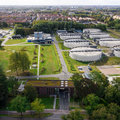
PhD candidate Edward van Dijk is defending his thesis on the Nereda® wastewater treatment technology today. He combined his doctoral programme with his work at Royal HaskoningDHV, where he is doing research into water treatment installations that convert wastewater into clean surface water.
04 November 2022
Making salt water fresh on Lampedusa
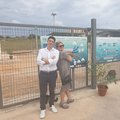
Since last week, a large-scale demo installation in Lampedusa is producing drinking water, salts and chemicals from seawater in an environmentally friendly way. Project leader Dimitris Xevgenos: “This is the first time that we’re producing these marketable products at pre-commercial scale in Europe together with the right actors, including the use of waste heat. People can come and actually see it running.”
24 October 2022
Dutch government confirms €60M investment into cellular agriculture
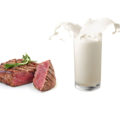
The Dutch government has confirmed that it will allocate €60 million to support an ecosystem around cellular agriculture, the technology to produce animal products such as meat and milk proteins directly from animal and microbial cells.
28 June 2022
Baker’s yeast with human muscle genes
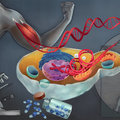
Biotechnologist Pascale Daran-Lapujade and her group at Delft University of Technology managed to build human muscle genes in the DNA of baker’s yeast. This is the first time researchers have successfully placed such a vital human feature into a yeast cell.
28 June 2022
7.4 million euros for research into products from wastewater
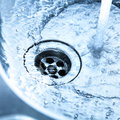
Showering, cleaning, flushing toilets, and industrial production are all processes that use a great deal of water. But what happens to the waste in the water, to everything that is flushed away and disappears into the sewer system together with the water?
26 April 2022
ERC Advanced Grant for chemical dream reactions with enzymes
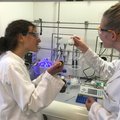
One of the big societal challenges today, is that the chemical industry still consumes a considerable amount of energy and resources. “This is a global issue for most, if not all, chemicals that factories produce nowadays”, says researcher Frank Hollmann. He has received a 2.5 M€ ERC Advanced Grant from the European Union to help tackle this problem over the next five years, by engineering enzymes as a catalyst for chemical reactions.
15 April 2022
National Growth Fund finances Cellular Agriculture

The National Growth Fund of the Dutch government grants conditional funding of 60 million euros to the Cellular Agriculture consortium, whose goal is to produce and promote protein-rich food from cultivated cells. The TU Delft is one of the founders of the consortium, with Marcel Ottens as initiator of the line of research. The TU Delft, together with the companies PlanetBio, DSM, Meatable, CE Delft and others, forms a hub in Delft for this new field of work.
24 February 2022
Mark van Loosdrecht wins Novozymes Prize for 25 years of revolutionary wastewater treatment
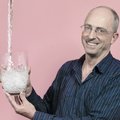
The development of new technologies for biological wastewater treatment is turning our view of sludge upside down. Microbiologist Mark van Loosdrecht receives the 2022 Novozymes Prize for his pioneering work in copying and reusing nature’s mechanisms in wastewater treatment and resource recovery. Van Loosdrecht: “Treating wastewater will become good business in the future.”
23 December 2021
Super-fast technique measures heme enzyme reaction as it happens
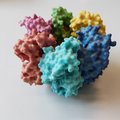
Researchers from TU Delft found an unexpected new enzyme intermediate at work in enzymes that contain heme, a cofactor that’s vital for many processes in our body such as the breaking down of toxins in the liver. The researchers used new, rapid techniques, which are less invasive than existing methods. The results, published in ACS Catalysis, increase our understanding of heme proteins and enzymes and how they can be engineered.